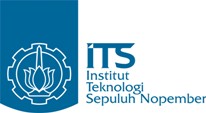Performance Improvement Incremental Conductance Algorithm using Incremental Fuzzy to Reach GMPP under Partial Shading Conditions
Abstract
Keywords
Full Text:
PDFReferences
M. N. HABIBI, D. N. PRAKOSO, N. A. WINDARKO, and A. TJAHJONO, “Perbaikan MPPT Incremental Conductance menggunakan ANN pada Berbayang Sebagian dengan Hubungan Paralel,” ELKOMIKA J. Tek. Energi Elektr. Tek. Telekomun. Tek. Elektron., vol. 8, no. 3, p. 546, 2020, doi: 10.26760/elkomika.v8i3.546.
D. Juniyanto, T. Andrasto, and S. Suryono, “Optimalisasi Stand-Alone Photovoltaic System dengan Implementasi Algoritma P&O-Fuzzy MPPT,” J. Tek. Elektro, vol. 10, no. 1, pp. 1–10, 2018, doi: 10.15294/jte.v10i1.14108.
R. M. Hakim, “Desain dan Implementasi MPPT Berbasis Algoritma Modified Incremental Conductance untuk Photovoltaic dengan Perubhan Iradiasi Matahari yang Cepat,” Surabaya, 2018.
S. Anitha, C. Vinay Kumar Reddy, G. Balaram, and G. Ranadheer Reddy, “Design of PV Array Using Boost Converter by Incremental Conductance Mppt Power Technique,” IOP Conf. Ser. Mater. Sci. Eng., vol. 981, no. 4, 2020, doi: 10.1088/1757-899X/981/4/042075.
P. K. Mishra and P. Tiwari, “Incremental conductance MPPT in grid connected PV system,” Int. J. Eng. Sci. Technol., vol. 13, no. 1, pp. 138–145, 2021, doi: 10.4314/ijest.v13i1.21s.
A. Baihaqiy, T. Hardianto, B. S. Kaloko, M. Gozali, and B. Sujanarko, “Rancang Bangun Sepic Converter Untuk Panel Surya Dengan Mppt Inc Sebagai Pengisian Baterai Sepeda Listrik,” J. Arus Elektro Indones., vol. 6, no. 2, p. 38, 2020, doi: 10.19184/jaei.v6i2.19642.
D. N. Prakoso, A. Afandi, M. Arrijal, R. Abdurrahman, and N. A. Windarko, “Perbandingan Metode MPPT Incremental Conductance Incremental Resistance dan Hill Climbing dengan PSIM,” Jetri J. Ilm. Tek. Elektro, vol. 17, no. 2, pp. 175–190, 2020, doi: 10.25105/jetri.v17i2.6076.
M. Ahmad, A. Numan, and D. Mahmood, “A Comparative Study of Perturb and Observe (P&O) and Incremental Conductance (INC) PV MPPT Techniques at Different Radiation and Temperature Conditions,” Eng. Technol. J., vol. 40, no. 2, pp. 376–385, 2022, doi: 10.30684/etj.v40i2.2189.
T. A. Zulhelmi, “Comparisonal Analysis Of Incremental Conductance And Perturb And Observe Methods As MPPT Algorithm In Photovoltaic System,” J. Mekintek J. Mek. Energi, Ind. Dan Teknol., vol. 12, no. 1, pp. 17–22, 2021, doi: 10.35335/mekintek.v12i1.23.
L. Shengqing, L. Fujun, Z. Jian, C. Wen, and Z. Donghui, “An improved MPPT control strategy based on incremental conductance method,” Soft Comput., vol. 24, no. 8, pp. 6039–6046, 2020, doi: 10.1007/s00500-020-04723-z.
G. H. N. Aldiantama, “Perancangan MPPT Modified Incremental Conductance menggunakan Interleaved Boost Converter untuk Reduksi Osilasi,” J. Tek. Energi Elektr. Tek. Telekomun. Tek. Elektron., vol. 10, no. 1, pp. 76–89, 2022.
I. Owusu-Nyarko, M. A. Elgenedy, I. Abdelsalam, and K. H. Ahmed, “Modified variable step-size incremental conductance mppt technique for photovoltaic systems,” Electron., vol. 10, no. 19, 2021, doi: 10.3390/electronics10192331.
J. A. Hamonangan, “Review Perbandingan Teknik Maximum Power Point Tracker (MPPT) untuk Sistem Pengisian Daya menggunakan Sel Surya,” J. Teknol. Dirgant., vol. 16, no. 2, p. 111, 2019, doi: 10.30536/j.jtd.2018.v16.a2998.
M. S. Al-mohamade and H. D. Al-majali, “Comparison between Fuzzy-logic MPPT and the Exciting Incremental Conductance Method under Fast Varying of Irradiance 2 . Photovoltaic Module Modeling,” 2021.
A. Bharathi Sankar Ammaiyappan and R. Seyezhai, “Implementation of fuzzy logic control based mppt for photovoltaic system with silicon carbide (Sic) boost dc-dc converter,” WSEAS Trans. Syst. Control, vol. 16, pp. 198–215, 2021, doi: 10.37394/23203.2021.16.17.
W. S. E. Abdellatif, M. S. Mohamed, S. Barakat, and A. Brisha, “A fuzzy logic controller based mppt technique for photovoltaic generation system,” Int. J. Electr. Eng. Informatics, vol. 13, no. 2, pp. 394–417, 2021, doi: 10.15676/ijeei.2020.13.2.9.
K. Loukil, H. Abbes, H. Abid, M. Abid, and A. Toumi, “Design and implementation of reconfigurable MPPT fuzzy controller for photovoltaic systems,” Ain Shams Eng. J., vol. 11, no. 2, pp. 319–328, 2020, doi: 10.1016/j.asej.2019.10.002.
M. Merchaoui, M. Hamouda, A. Sakly, and M. F. Mimouni, “Fuzzy logic adaptive particle swarm optimisation based MPPT controller for photovoltaic systems,” IET Renew. Power Gener., vol. 14, no. 15, pp. 2933–2945, 2020, doi: 10.1049/iet-rpg.2019.1207.
W. Hayder, E. Ogliari, A. Dolara, A. Abid, M. Ben Hamed, and L. Sbita, “Improved PSO: A comparative study in MPPT algorithm for PV system control under partial shading conditions,” Energies, vol. 13, no. 8, 2020, doi: 10.3390/en13082035.
E. S. Wirateruna, A. Fitri, and A. Millenia, “Design of MPPT PV using Particle Swarm Optimization Algorithm under Partial Shading Condition,” vol. 4, no. 1, pp. 24–30, 2022, [Online]. Available: http://dx.doi.org/10.25139/ijair.v4i1.4327.
D. A. Asoh, B. D. Noumsi, and E. N. Mbinkar, “Maximum Power Point Tracking Using the Incremental Conductance Algorithm for PV Systems Operating in Rapidly Changing Environmental Conditions,” Smart Grid Renew. Energy, vol. 13, no. 05, pp. 89–108, 2022, doi: 10.4236/sgre.2022.135006.
H. Othmani, D. Mezghani, A. Belaid, and A. Mami, “New approach of incremental conductance algorithm for maximum power point tracking based on fuzzy logic,” Int. J. Grid Distrib. Comput., vol. 9, no. 7, pp. 121–132, 2016, doi: 10.14257/ijgdc.2016.9.7.13.
H. Deboucha and S. L. Belaid, “Improved incremental conductance maximum power point tracking algorithm using fuzzy logic controller for photovoltaic system,” Rev. Roum. des Sci. Tech. Ser. Electrotech. Energ., vol. 62, no. 4, pp. 381–387, 2017.
R. Fibrianti, “Rancang Bangun SEPIC (Single-Ended Primary Inductance Converter) untuk Aplikasi MPPT (Maximum Power Point Tracker) Jenis Constant Voltage (CV),” J. Teknol. Elekterika, vol. 17, no. 2, pp. 7–13, 2020, [Online]. Available: http://jurnal.poliupg.ac.id/index.php/JTE/article/view/2159.
Y. M. Kolewora, E. Firmansyah, and Suharyanto, “Mppt Berdasarkan Algoritma P&O Dan Ic Pada Interleaved-Flyback 250W,” Telematika, vol. 11, no. 1, p. 18, 2018, doi: 10.35671/telematika.v11i1.603.
I Sutrisno, MA Jami’in, J Hu, MH Marhaban, N Mariun, "Nonlinear Model-Predictive Control Based on Quasi-ARX Radial-Basis Function-Neural-Network", 2014 8th Asia Modelling Symposium, http://repository.ppns.ac.id/1402/1/2014%20AMS.pdf
Imam Sutrisno, Muhammad Firmansyah, Romy Budhi Widodo, Ardiansyah Ardiansyah, Mohammad Basuki Rahmat, Achmad Syahid, Catur Rakhmad Handoko, Agus Dwi Santoso, Ari Wibawa Budi Santosa, Riries Rulaningtyas, Edy Setiawan, Edy Prasetyo Hidayat, Daviq Wiratno,"Implementation of Backpropagation Neural Network and Extreme Learning Machine of pH Neutralization Prototype", Journal of Physics: Conference Series, https://iopscience.iop.org/article/10.1088/1742-6596/1196/1/012048/pdf
DOI: http://dx.doi.org/10.12962%2Fj25481479.v9i1.20172
Refbacks
- There are currently no refbacks.
 |  |  |  |
| |  |  |
|
|
|
|
|
P-ISSN: 2541-5972
E-ISSN: 2548-1479
IJMEIR journal published by Department of Marine Engineering, Faculty of Marine Technology, Institut Teknologi Sepuluh Nopember Surabaya Indonesia under licenced Creative Commons Attribution-ShareAlike 4.0 International Licence. Based on https://iptek.its.ac.id/index.php/ijmeir/


1.png)
